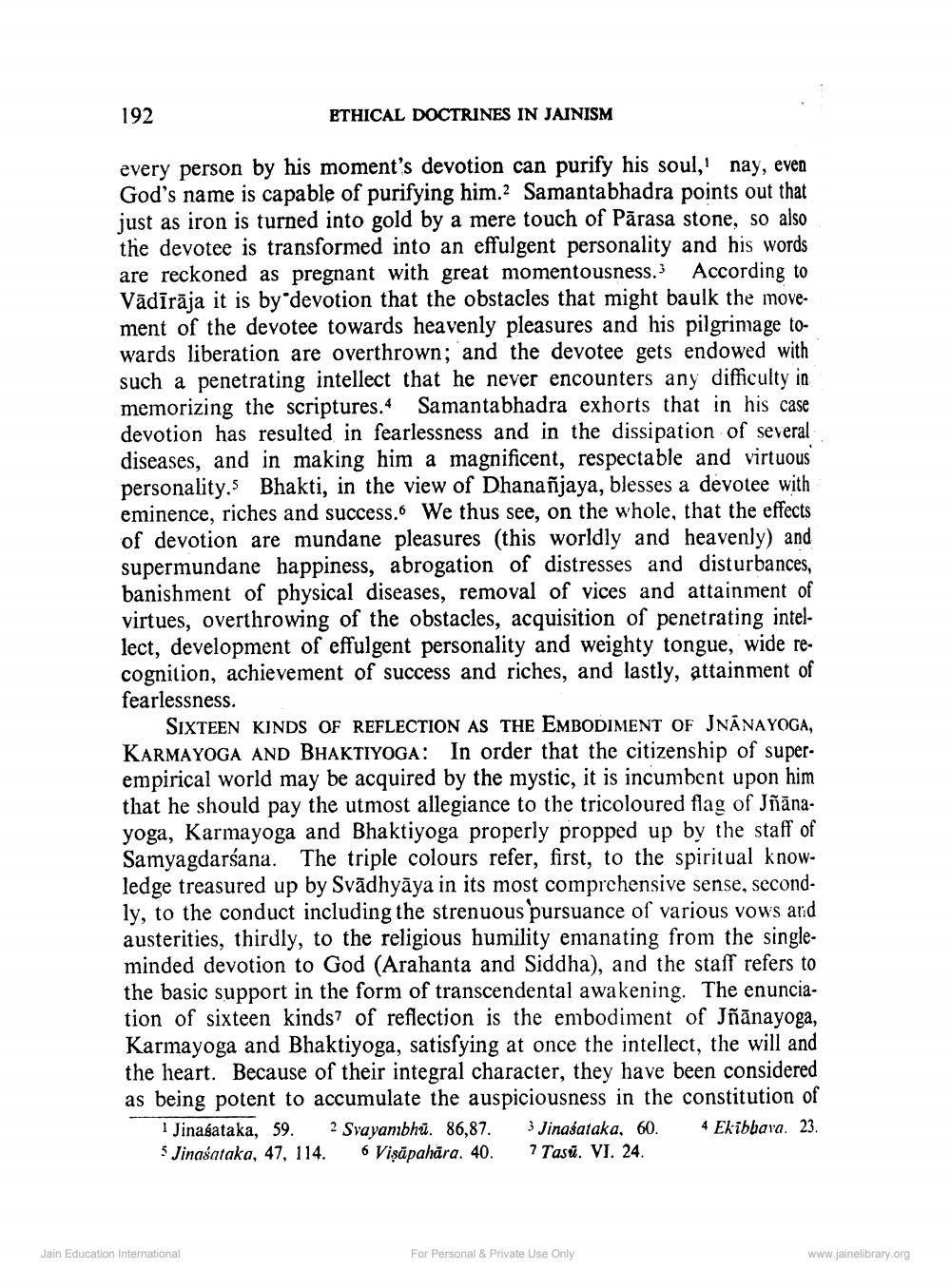________________
192
ETHICAL DOCTRINES IN JAINISM
every person by his moment's devotion can purify his soul,' nay, even God's name is capable of purifying him.2 Samantabhadra points out that just as iron is turned into gold by a mere touch of Pārasa stone, so also the devotee is transformed into an effulgent personality and his words are reckoned as pregnant with great momentousness. According to Vādīrāja it is by devotion that the obstacles that might baulk the move. ment of the devotee towards heavenly pleasures and his pilgrimage towards liberation are overthrown; and the devotee gets endowed with such a penetrating intellect that he never encounters any difficulty in memorizing the scriptures. Samantabhadra exhorts that in his case devotion has resulted in fearlessness and in the dissipation of several diseases, and in making him a magnificent, respectable and virtuous personality.s Bhakti, in the view of Dhanañjaya, blesses a devotee with eminence, riches and success. We thus see, on the whole, that the effects of devotion are mundane pleasures (this worldly and heavenly) and supermundane happiness, abrogation of distresses and disturbances, banishment of physical diseases, removal of vices and attainment of virtues, overthrowing of the obstacles, acquisition of penetrating intellect, development of effulgent personality and weighty tongue, wide recognition, achievement of success and riches, and lastly, attainment of fearlessness.
SIXTEEN KINDS OF REFLECTION AS THE EMBODIMENT OF JNANAYOGA, KARMAYOGA AND BHAKTIYOGA: In order that the citizenship of superempirical world may be acquired by the mystic, it is incumbent upon him that he should pay the utmost allegiance to the tricoloured flag of Jñānayoga, Karmayoga and Bhaktiyoga properly propped up by the staff of Samyagdarśana. The triple colours refer, first, to the spiritual knowledge treasured up by Svādhyāya in its most comprehensive sense, secondly, to the conduct including the strenuous pursuance of various vows and austerities, thirdly, to the religious humility emanating from the singleminded devotion to God (Arahanta and Siddha), and the staff refers to the basic support in the form of transcendental awakening. The enunciation of sixteen kinds of reflection is the embodiment of Jñānayoga, Karmayoga and Bhaktiyoga, satisfying at once the intellect, the will and the heart. Because of their integral character, they have been considered as being potent to accumulate the auspiciousness in the constitution of
1 Jinabataka, 59. 2 Svayambhū. 86,87. 3 Jinašataka, 60. 4 Ekibbara. 23. 5 Jinašataka, 47, 114. Visāpahára. 40. ?Tasů. VI. 24.
Jain Education International
For Personal & Private Use Only
www.jainelibrary.org




